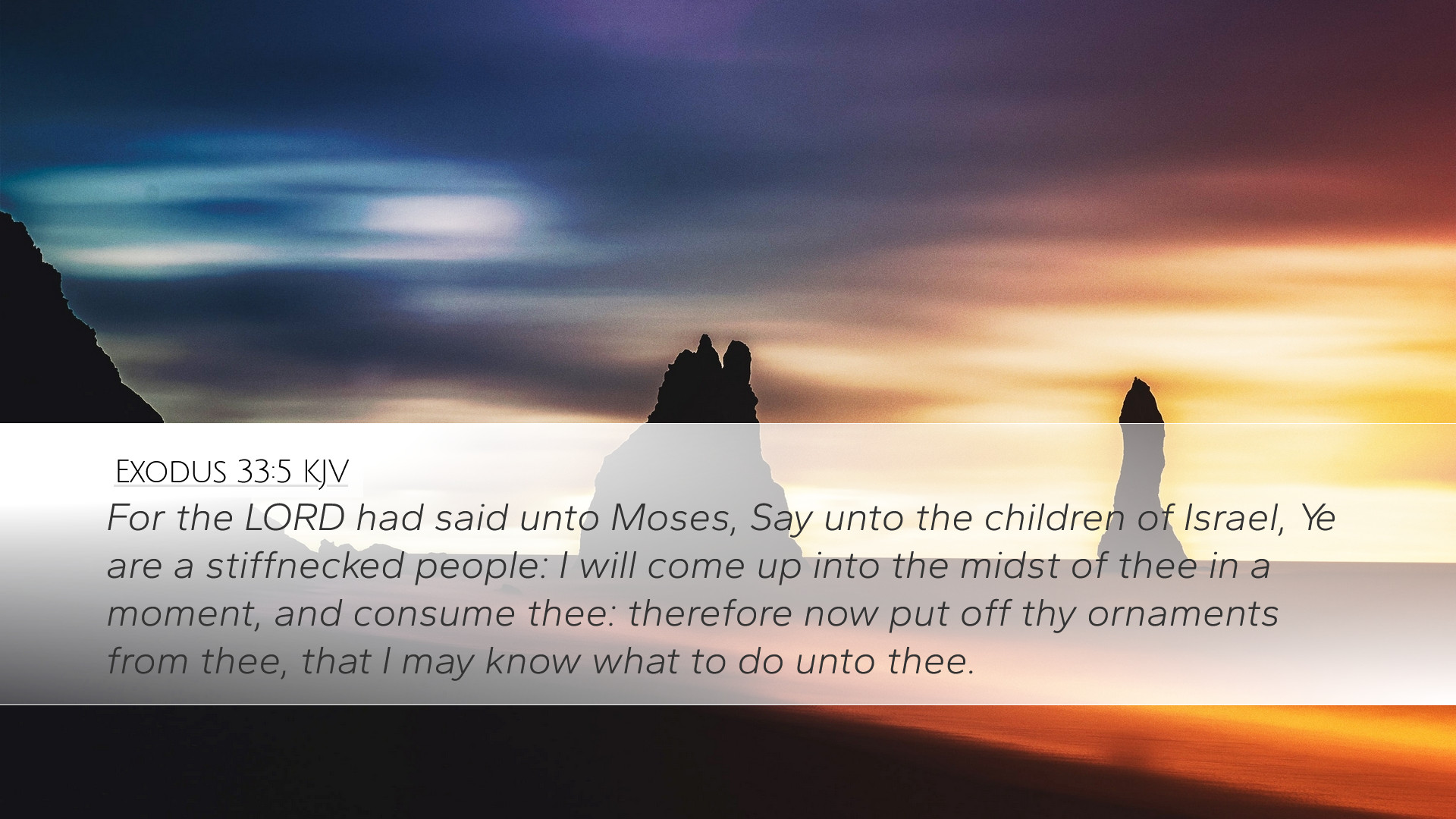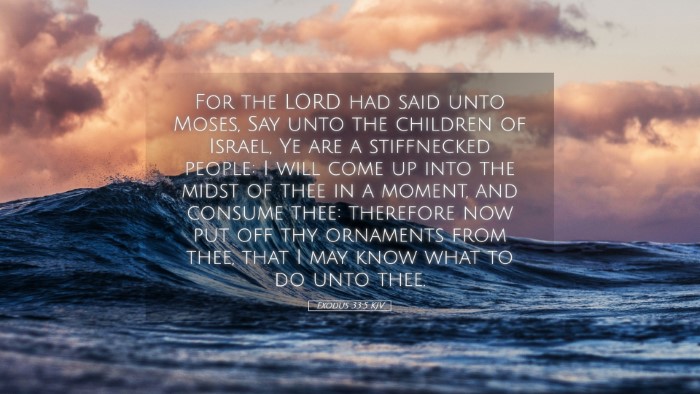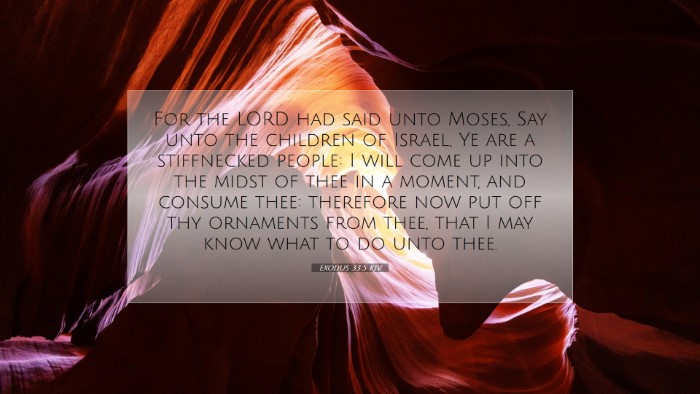Commentary on Exodus 33:5
Verse: “For the Lord had said unto Moses, Say unto the children of Israel, Ye are a stiffnecked people: I will come up into the midst of thee in a moment, and consume thee: therefore now put off thy ornaments from thee, that I may know what to do unto thee.” (Exodus 33:5)
Introduction
The verse selected for commentary is pivotal in understanding the relationship between God and Israel during their journey in the wilderness. It encapsulates themes of divine presence, human disobedience, and the necessity of holiness. Various public domain commentaries, including those by Matthew Henry, Albert Barnes, and Adam Clarke, provide insight into the gravity and implications of this scripture.
The Context of Exodus 33:5
Exodus 33 occurs after the incident of the golden calf (Exodus 32), where Israel's idolatry provoked God's righteous anger. In this chapter, Moses ascends the mount to seek God's mercy for the people. The Lord’s response reflects His desire for a holy people, compatible with His presence.
God's Displeasure and Human Stubbornness
Matthew Henry observes that God's declaration of Israel as “stiffnecked” denotes their obstinacy and rebellion against divine authority. This term suggests a willful resistance to God’s leading, akin to an unruly ox that refuses to submit to the yoke. The implication here is stark; the stiff-necked nature of the people endangers their communion with God.
- Stiffnecked People: A recurring theme in scripture, representing persistent disobedience.
- Divine Warning: God's intention to consume them underscores the seriousness of their sin.
The Call to Repentance
Albert Barnes emphasizes the command to “put off thy ornaments” as a symbolic act of repentance and humility. The removal of ornaments signifies a renunciation of pride and self. It is a call for preparation to receive God's mercy and signals an awareness of their sinful state.
- Ornaments as Pride: The ornaments could be seen as reminders of the idolatry that occurred.
- Preparation: God’s directive invites introspection; repentance is essential for restoration.
The Significance of God's Presence
Adam Clarke provides a theological exploration of God's willingness to dwell among His people. The phrase “I will come up into the midst of thee” reveals God's desire to be near to them. This nearness, however, is contingent upon their willingness to repent and purify themselves.
- God's Desire for Relationship: God longs for fellowship with His creation, which is disrupted by sin.
- Conditional Fellowship: The closeness of God's presence requires a corresponding holiness from His people.
Lessons for Modern Believers
The implications of Exodus 33:5 resonate profoundly in today’s Christian discourse. The themes of sin, repentance, and the necessity of divine presence are central to spiritual formation.
- Self-Examination: Believers must evaluate what “ornaments” they cling to that may hinder their relationship with God.
- Divine Holiness: Acknowledging the holiness of God requires an honest confrontation with sin.
- Desire for God’s Presence: Understanding that God desires to dwell in our midst compels us to pursue righteousness.
Conclusion
In summary, Exodus 33:5 serves as a pointed reminder of the tension between divine holiness and human disobedience. The exhortation to put away ornaments is as relevant today as it was to the Israelites—calling for a life marked by humility, repentance, and the pursuit of holiness, which aligns with God's desire to be present with His people.
The commentaries by Henry, Barnes, and Clarke collectively underscore the imperative that God’s presence is a precious gift, one that we must pursue with a heart attuned to His holiness.


